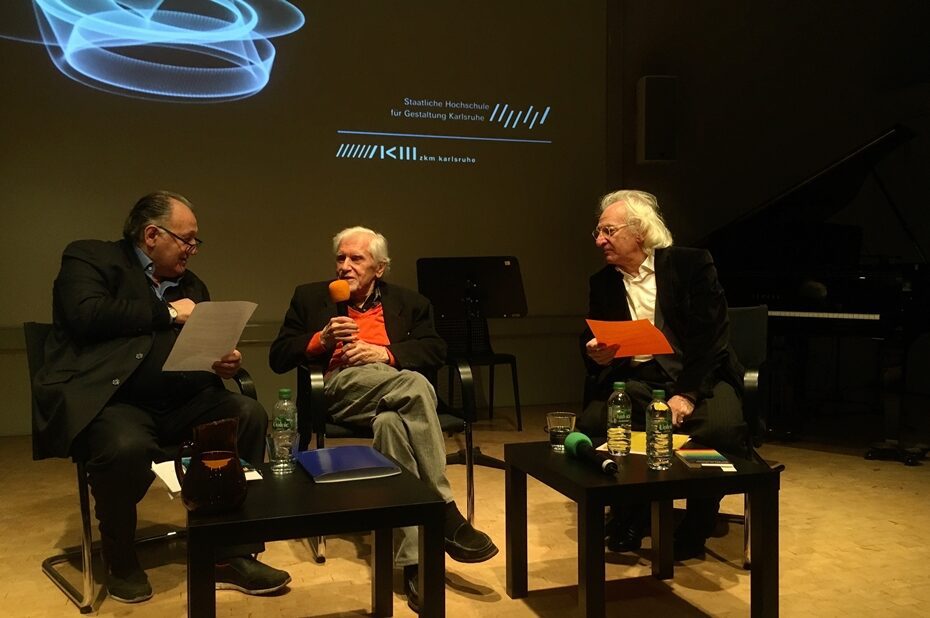+++ Zielinski: Special pioneering achievements pioneering achievements and merits.
+++ Weibel: Franke and the freedom of utopia
+++ Franke: A life as a wanderer between science and art.
On February 14, 2018, at 6 p.m., the ceremony for the award of an honorary doctorate to Herbert W. Franke took place.






Prof. Dr. Siegfried Zielinski, Dean of the university, who has followed Franke’s life and work for many decades, emphasizes on the one hand the orientation “into the macro-cosmic dimensions of the pluriverse, which often so excessively exceeds the perceptive capacity of the thumblings on earth.” In contrast, Franke said, the paleontological path led him into the caves and their hidden histories, into the underworlds, “which, following Novalis, can be called reverse astronomy.” Future and past between macro- and micro-cosmos, between future and past presences, that, Zielisnki emphasized, would reflect in Herbert W. Franke’s work images of thinking in the now. Always at the center in Franke’s work: mathematics with the meaning and character of formulas – reflecting “on what the arts know and looking impressively and sensually at the limits of what knowledge can do.”






A special highlight of the ceremony was the premiere of a composition with the help of a neural network by Philipp Ernst, who generated this work especially for the occasion of the presentation of the honorary doctorate to Herbert W. Franke. The choice for the input of the neural network fell on Wagner’s Parsifal – in allusion to one of the pseudonyms Herbert W. Franke used as a writer: Peter Parsifal. The structures were also combined for the composition with stylistic features from Sarabanden by Georg Friedrich Händel and piano works by Erik Satie.
Peter Weibel, director of the ZKM, focused on the works and work of the scientist and artist. According to combinatorics, there would be four possibilities: Creators with works that remain without effect, those who have an effect but have never created any works. Then there is the case of those who neither have an impact nor have any works to show for it. H. W. Franke, on the other hand, is a man of letters and an artist who has not only created numerous works, but has also reached many people with them and influenced them – for example, in their choice of profession. This, he said, has a powerful effect on people with whom there is no direct personal contact. “As an artist and scientist,” Weibel sums up, “Franke is a Renaissance man who made very early and very decisive achievements in many disciplines, from chemistry to electronic art. With his enormous power of imagination, Franke has always operated on the front lines of research-from science fiction literature to art, from physics to speleology. His signature is the freedom of utopia in the age of technical media.”
Margit Rosen presented the Herbert W. Franke Archive at the ZKM. An estate of the records, documents and correspondence collected over seventy years in Franke’s three main research areas has already been handed over to the ZKM. Cataloguing of the archive began in early 2018.






Lastly, there was a talk by Zielinski, Weibel and Franke. The three “grandees of media art” talked about Franke’s views and works in a relaxed atmosphere.

